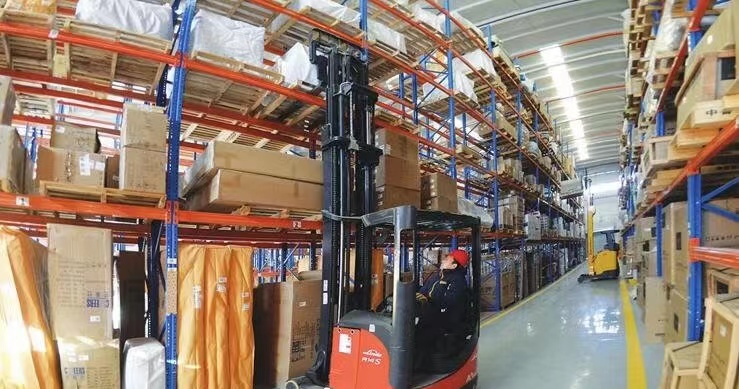Logistics and transportation not only affect people’s daily life, but also an indispensable link for industrial production. As an “infrastructure-based” industry that supports people’s livelihood and ensures the flow of production factors, the logistics and transportation industry urgently needs to transform and upgrade to intelligent operations through platform technologies such as artificial intelligence and automation. The next generation of smart logistics is one of the core competitiveness of China to ensure the internal circulation of the economy.
Market demand gradually entered a blowout period.
Logistics is the blood of manufacturing and material supply. In the manufacturing process, logistics costs account for nearly 30% of production costs.
Affected by multiple factors such as the epidemic and rising labor costs year by year, manufacturing companies are now more than ever hoping to use automation solutions to assist manpower, alleviate labor shortages, and ensure the smooth circulation of economic factors.
The unmanned forklift robot market has seen a 16-fold increase in sales over the past 4 years and is growing rapidly. Even so, unmanned forklifts account for less than 1% of the entire forklift market, and there is huge market space in the future.
Widespread implementation still needs to overcome difficulties.
There is a huge demand for autonomous mobile robots in the pharmaceutical and food and beverage warehousing and logistics scenarios, but the requirements are very high. For example, aisles in a pharmaceutical factory are so narrow that robots and forklifts with too large a turning radius cannot pass. In addition, the pharmaceutical industry has strict quality management standards for drug production, and the food and beverage industry also has corresponding standards. Affected by these factors, logistics automation in the pharmaceutical and food and beverage industries has not been well resolved.
To solve such problems, the founding team and founders of autonomous mobile robots need to have a good understanding of the problems and needs of the scene, and have a deep understanding and cognition of robotics.
Some more subdivided scenarios currently lack better smart logistics products. The working environment and work experience of workers in the cold chain industry are poor, personnel stability is low, turnover rate is high, and worker replacement is a pain point in the industry. But at present, the cold chain industry still lacks better autonomous mobile robot products.
It is necessary to make products that are very suitable for a certain industry or several industries, and expand the product from the hardware dimension to the scale of tens of thousands or hundreds of thousands of units, and the overall cost can be reduced. The more standardized the hardware and the more delivery cases, the higher the degree of standardization of the entire solution, and the more willing customers are to use your product.
Only by digging deep into the pain points of customers and combining their own technical capabilities can we launch products that are very suitable for the needs of the entire industry. At present, in the logistics industry, the entire mobile robot field is in great need of companies with product innovation capabilities.
Post time: May-19-2022
